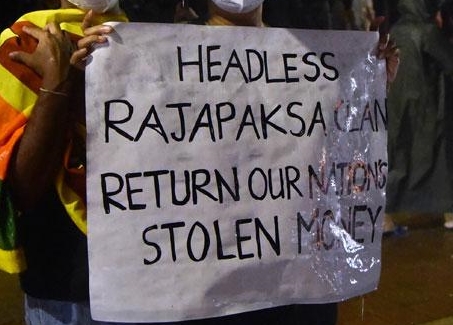Sri Lanka is desperately seeking the international community’s support to help it overcome the worst economic crisis it has faced since Independence, and it has pinned its biggest hopes on the International Monetary Fund (IMF) out of all potential saviours.
The US Senate Foreign Relations Committee said last week on Twitter that any IMF agreement with Sri Lanka must be contingent on the independence of the Central Bank of Sri Lanka (CBSL), strong anti-corruption measures, and promotion of the rule of law. It added that without these reforms – which it called “critical” – Sri Lanka could suffer further economic mismanagement and unsustainable debt.
This statement comes in a context where the IMF mission to Sri Lanka concluded its visit last week without reaching a staff-level agreement, contrary to the expectations of the Government and Prime Minister Ranil Wickremesinghe, who had said that a staff-level agreement would be reached by the end of June. In its statement, the IMF reiterated its commitment to support Sri Lanka in line with its policies, and agreed to continue talks with the local authorities virtually to reach the sought-after staff-level agreement. The IMF also posted on Twitter last week that stepping up reforms to address corruption vulnerabilities to enable Sri Lanka to meet its full potential is among the organisation’s aims.
That is also the message the US Senate Foreign Relations Committee’s statement conveys, and that is a message Sri Lanka should not ignore, given the fact that the US is by far the IMF’s largest contributing member. Put simply, the American assessment of Sri Lanka’s sincerity and capabilities with regard to structural economic reforms and the rule of law could determine the speed at which a programme is agreed upon with the IMF. The importance of the three matters the US Senate Foreign Relations Committee had pointed out – i.e. CBSL’s independence, implementing anti-corruption measures, and ensuring rule of law – have been stressed on by independent voices and even politicians over the years, but appear to have fallen on deaf ears, particularly during the Mahinda Rajapaksa administration from 2005-2015 and the present Gotabaya Rajapaksa Government.
When it comes to the CBSL’s independence, even though the incumbent CBSL Governor is viewed by many as the right person for the job, his predecessor was not. That was not only due to Ajith Nivard Cabraal’s questionable track record during his previous stint in the post, but also because his appointment as CBSL Governor came shortly after his resignation as a State Minister and his exit from Parliament. This, according to many critics, was tantamount to bringing the governing party’s political interests to the CBSL.
“The lack of rule of law is the most concerning part of the crisis the US Senate Foreign Relations Committee pointed out, and it has particularly been lacking under governments led by members of the ruling Rajapaksa family.”
Corruption is deep-rooted in Sri Lanka and successive governments have made little to no progress in addressing this problem. On the one hand, Sri Lanka has failed to effectively and efficiently probe large-scale corruption allegations such as those revealed through the Pandora Papers and by audits of leading public institutions. On the other hand, even the existing mechanisms such as the Right to Information (RTI) Act do not seem to be as effective as they should, as authorities routinely reject RTI applications on grounds such as national security or it not being in the public interest.
Economic failure is inevitable when a country fails to take action against the corrupt. A culture of impunity for corruption only breeds further corruption, as there are no strong deterrents against it, which ultimately hurts the national economy.
“The concerns raised by the US Senate Foreign Relations Committee is a wake up call to those who still think that the ongoing economic crisis can be divorced from the larger issues of human rights and rule of law.”
The lack of rule of law is the most concerning part of the crisis the US Senate Foreign Relations Committee pointed out, and it has particularly been lacking under governments led by members of the ruling Rajapaksa family. The impunity of prominent politicians, military and Police personnel, and high-ranking public officials, State-backed human rights violations, non-implementation of recommendations with regard to major issues such as the Easter Sunday attacks, Presidential pardons being granted to convicted murderers, and the extremely slow progress in addressing rights violations are just a few examples. Even in the past few months, the people’s right to express their opinion and protest were severely violated in broad daylight, and the authorities show a great lackadaisicalness or partiality as far as actions against harassers are concerned.
The concerns raised by the US Senate Foreign Relations Committee is a wake up call to those who still think that the ongoing economic crisis can be divorced from the larger issues of human rights and rule of law. In this context, both the rulers and the people have important roles to play if they want the IMF, or any other international entity or a democratic foreign nation, to support Sri Lanka. The Government’s efforts at legal and social reforms should be genuine, and that sincerity should be visible. If the rulers are not willing to enact those reforms effectively and immediately, they should leave, as their continued control of Sri Lanka would only take the country and its people further into the abyss.
